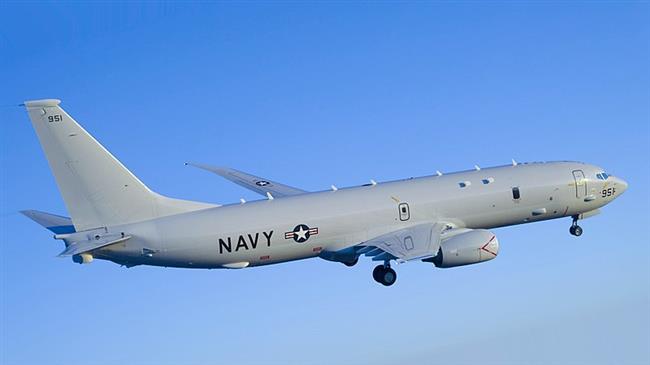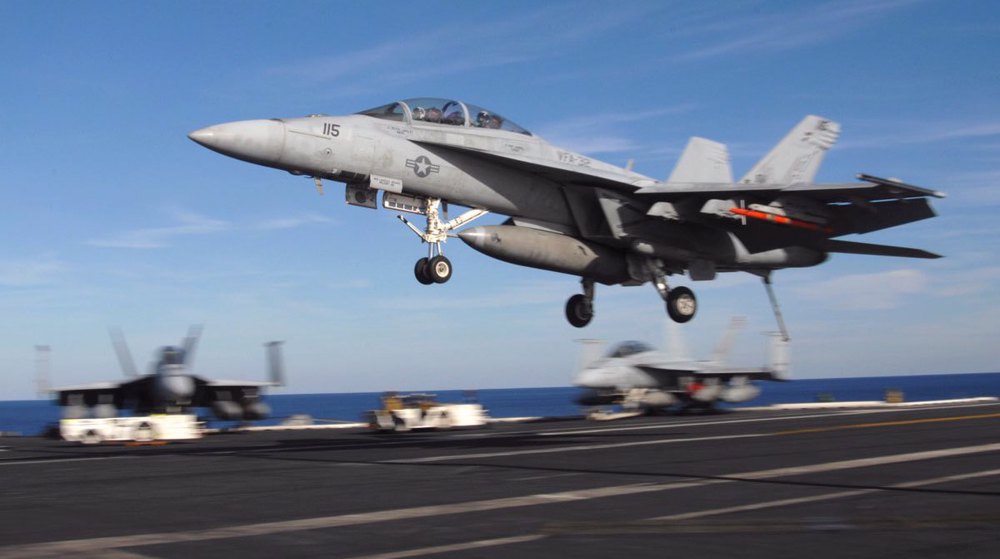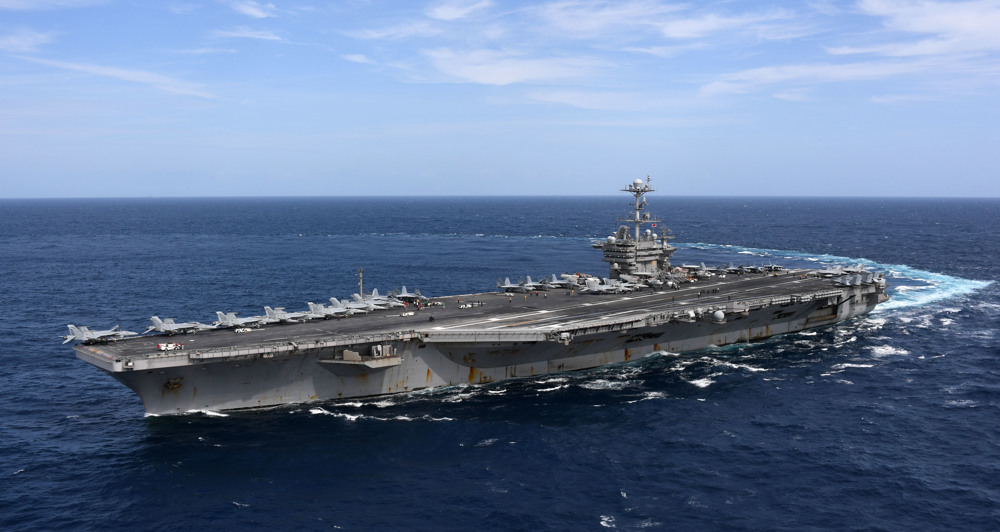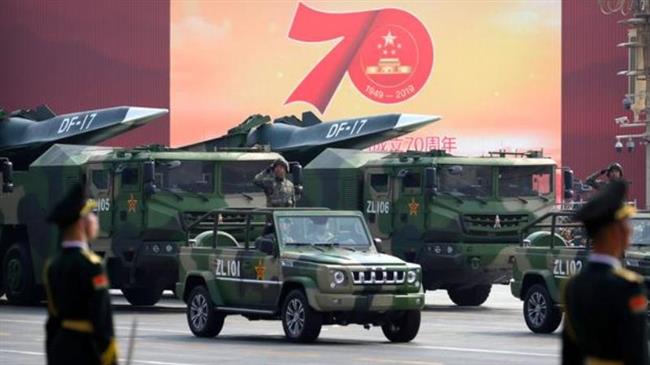China rejects Pentagon claim it fired laser at US Navy spy aircraft
China’s Ministry of Defense has denied a claim by the US military that a Chinese naval ship had fired a laser at a US Navy spy plane circling overhead last month.
Refuting the American claim for the first time since February 17 when the incident allegedly happened, the ministry’s spokesman Ren Guoqiang insisted in a statement posted Friday on its official Wechat that the US version of events “did not accord with reality,” adding that a Chinese squadron was engaged in routine naval drills in international waters when approached by the US warplane.
Ren further accused the US Navy’s P-8A Poseidon surveillance aircraft of carrying out “long-period circling reconnaissance at low-altitude despite repeated warnings from the Chinese side.”
“The American aircraft’s behavior was unfriendly in intention and unprofessional by operation, which severely threatened the safety of the vessels, aircraft and crew of both sides,” he added.
The reaction by Beijing came weeks after the US military alleged that Chinese forces have used lasers to harass and potentially damage American and other nations’ military aircraft and personnel.
The claim last month by the US Pacific Fleet further stated that the alleged laser beam was detected by sensors on the aircraft, but was not visible to the naked eye.
The US Navy, according to local press reports, waited more than a week before accusing the Chinese ship of firing a laser at the American spy plane flying over the Philippine Sea, west of Guam -- an act the US slammed as “unsafe and unprofessional” and described as a violation of international codes and agreements.
The US military regularly dispatches warships and warplanes to the East and South China Seas, which are adjacent to the Philippine Sea, as part of the patrols it describes as “freedom of navigation” without seeking authorization from Beijing.
China has constantly warned Washington against its expanding military activities in the region. Beijing has also urged the administration of hawkish US President Donald Trump on numerous occasions to stop meddling in China’s territorial disputes with its neighbors.
The development also came weeks after US Secretary of Defense Mark Esper warned allies of China’s aggressive economic and military policies at the expense of other nations and thereby challenging the “international order” established by Washington.
Beijing “is heading even faster and further in the wrong direction, more internal repression, more predatory economic practices, more heavy-handedness, and, most concerning for me, a more aggressive military posture,” Esper said at the Munich Security Conference in Germany on February 15.
“It is essential that we -– as an international community –- wake up to the challenges presented by China’s manipulation of the long-standing international, rules-based order,” he added.
Esper has made China a key focus for the US military planning since taking office and seeks to redeploy American forces from other areas to confront a growing military competition with China.
The US claim that China is seeking to expand its international influence has been a common assertion by Washington since the administration of former President Barack Obama.
‘All wars have rules. All of those rules have been broken’ by Israel
VIDEO | Report flags India’s violation of rights of Rohingya detainees
Turkey's foreign minister meets Syria's de facto leader in Damascus
'Next to impossible' to rescue patients from Gaza's Kamal Adwan Hospital: Director
VIDEO | Vietnam current prosperity
Report blames gasoil exports for shortage at Iranian power plants
VIDEO | Hind Rajab Foundation names Israeli war criminals vacationing after Gaza genocide
VIDEO | Australians rally for Gaza ahead of Christmas festivities
















 This makes it easy to access the Press TV website
This makes it easy to access the Press TV website